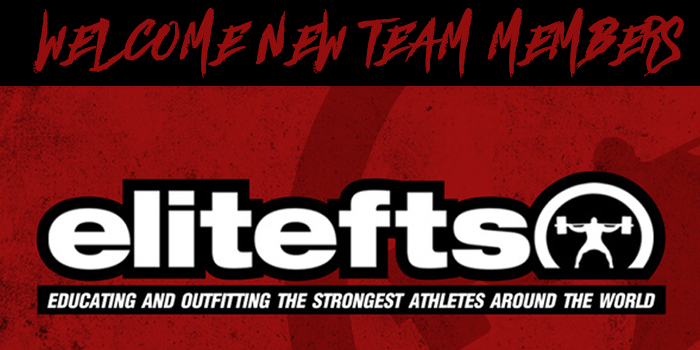
Have you ever been the supervisor or coach who was frustrated by your people’s lack or urgency towards the success of your organization or team? Have you ever been the employee or athlete that felt like the people in charge only cared about the bottom line or the scoreboard at the end of the game, while being completely apathetic regarding your personal well-being? Chances are likely that almost every person reading this could relate to one or both of the aforementioned perspectives…this paradigm represents a generations-old conflict that has created significant casualties on both sides of the organizational fence. Businesses go bankrupt, the workforce strikes or walks out, the coaches get fired, and teams never play to their potential. The consequences are significant and profoundly expensive. Nobody wins, everyone loses, and the worst reality of all is that this dynamic is simply considered an accepted part of working with people.
So the question is, what is the root of this tension? It simply comes down to what each side views as most important.
The very reason why leadership positions exist is to direct their organizations and teams towards desired results. This is how their success is measured: is the business making money, are you winning games, are you number one in your market? A leader who doesn’t focus on these key areas will not be a leader for long. No matter your vantage point, it is hard to be blind to the fact that the mission of any team or business is to win, and the survival/success of any organization or team is highly dependent on properly executing its mission. So when an employee complains that his supervisor seems to only care about money and results vs. how his family is doing or what his hobbies are, I would argue that the reason why is because his supervisor has a firm grasp on what his organization needs to do to keep its promises to its shareholders. When an athlete whines about his football coach making him drill the same steps over and over rather than scrimmage, it is probably because the coach knows that he needs to make certain those steps are executed as perfectly as possible if they hope to establish a running game against a top defense.
RECENT: Are You Pissing Off the Right People?
I have heard countless leaders complain about their people not understanding the big picture and a general “lack of urgency” towards the goals of the organization. To be completely honest, I have occasionally been guilty of voicing this complaint as well; however, just because you believe you have the best interests of the organization or team in mind when you go to work as a supervisor, doesn’t mean that you are absolved of any responsibility regarding the “we vs. they” mentality. In fact, I would argue that the leaders in charge are typically more to blame than their people.
Here’s why:
People evaluate their workplace or team based on some very basic human needs. Are they accepted? Are they safe? Are they supported and listened to? Do they have growth potential and is it being recognized/cultivated? Are they valued? Book after book, study after study, satisfaction survey after satisfaction survey all point to the same thing: if you want people to perform, you absolutely have to give them a home. The employee whose supervisor doesn’t check in with them to see how they are doing when their mom is fighting cancer or when they are going through a bankruptcy isn’t going to stay late or give the extra mile when quarterly statements are due. The athlete who doesn’t have some kind of personal connection with his or her coach isn’t going to care whether or not he disappoints the coach with his off-the-court behavior. That personal connection or lack thereof can be the deciding factor in whether or not a person becomes an all-star or a liability.
Unfortunately, these efforts are often labeled by leaders as hand-holding, babysitting, or parenting — condescending terms that foster the we vs. they tensions. For all the countless failed attempts by management bodies to pitch “results through people” and direct “culture change” movements, I would say that employees have also made the same if not greater attempts to gain the culture they desire by working their collective asses off. How often have they done precisely what was asked to them only to be flippantly awarded with greater responsibility and work pressure to deliver even more with no thanks, no recognition, or even an increase in status or credibility? I have seen athletes work hard to gain the praise and approval from their coaches only to be left without either. After numerous disappointments, it doesn’t take long for them to start to wonder whether playing the game is worth it at all and they quit without ever scraping the surface of their athletic potential.
As was mentioned earlier, this conflict has multiple casualties. One side has the responsibility to deliver results; the other side is looking for acceptance and validation. Both sides can’t exist without the other, so it would be easy to look at this as the ultimate standoff in all organizations/teams: cats vs. dogs, cowboys vs. Indians, monarchy vs. bourgeois’. This is a serious problem that doesn’t have a solution UNLESS you look upon this dynamic as a “compliment” rather than a “conflict” and realize that this relationship can and will thrive if both sides understand that it is transactional in nature.
Leaders need to understand that if they speak only in terms of results to their people and refuse to engage in activities that enhance relationships with the people on the ground level, they will ultimately fail in engaging and motivating their workforce. Conversely, people/athletes need to understand that their supervisors and coaches carry the burden of responsibility for the results of their team/organization and that their status and employment is exclusively dependent on those results. Both sides can stick to their focus points and completely disregard each other’s needs and constantly position themselves in direct opposition to each other. Or they can endeavor to see the great benefits behind each groups’ unique perspective, appreciate the balance and understand that “through this, we get this."
Conceptually, this is remarkably simple; however, in application, it can be very, very difficult. Here are a few points to consider.
To the leaders:
- I hope that by now, it is profoundly clear that this process starts with the leader. This is not a request for anyone to focus any less on the results; however, it is a plea to understand that your people are the vehicle that moves you towards the results that you desire. Consistently providing direction, encouragement, hope, and validation to those whom you supervise or coach is the equivalent of turbo charging your team or business. People will reward you with their effort, trust, and loyalty when they know that their leaders genuinely care about them.
- This does not require you to go “soft” or become a pushover. I have coached many leaders during my career who think that engaging and investing heavily in people somehow weakens their position and authority. Nothing could be further from the truth. While I would agree that there needs to be certain degrees of separation in order to promote the highest level of objectivity between leaders and their people, that does not mean that being aloof or uncaring is by any means permissible. There is nothing “soft” about a workforce or team that is highly engaged and motivated to succeed.
- You can’t “fake” it. People know when they are being tolerated and/or manipulated. They know when they are being treated as only a means to an end. And they don’t like it. This is the reason why so many paint-by-numbers “culture change” movements seldom do anything but further damage the organizations that they are conducted in. If leadership doesn’t believe in the genuine support of their people, then no amount of thank you notes or pizza parties are going to help the situation. Engage, get dirty, and you will be surprised with the result.
For the Employees/Athletes:
- Understand that the organization you work for or the team you are on is bigger than you and has a purpose beyond satisfying your individual needs. You should expect to be supported and encouraged by your leaders. However, you also should be expected to put forth effort and produce results. A person who costs more than they make is always a liability and will almost always be treated as such.
- Your leaders are people too. They will make mistakes; they will make decisions that you don’t agree with; there will be times when they will have to deliver bad news. If you want them to be a source of support and encouragement to you, then I strongly suggest you attempt to give the same to them. Being in charge of a business or a team is often a very lonely responsibility and I can’t even begin to express how meaningful it is when one of your people comes and checks in to see if you are all right. While there are definitely times when circumstances or situations can’t be fully explained to employees or athletes, it is certainly amazing to find out that there are people who care. I can promise that any leader worth a damn will definitely step up his or her support efforts in order to reciprocate the kindness.
- It is better to leave than to be perpetually dissatisfied with your workplace. If your leader is creating a toxic environment that cannot be transcended by working harder or caring more, then vote with your feet and leave the job or the team. Life is too short to spend 40+ hours a week in a culture that does not allow you to be the person you want to be. From time to time, firing someone as your boss or coach is the only way you can hope to open their eyes to what they are doing.
Stephen Covey once wrote that work is “the engine of life.” What I believe he meant by that is that any endeavor by which we give our efforts towards should not make our life worse. It should only make it better. The relationship between a leader and a follower should not be a contentious one. The “fight against the man” and anti-authority mentality of our modern culture only creates hardship and unfulfilled potential. When this relationship is embraced as a complimentary rather than conflicted, only then can true success be achieved.













1) Evaluate the relationship with your supervisor: the role of a boss is to share the burden of responsibility with your subordinates. My hope is that they recognize this and would be open to dialogue regarding how their employees are feeling in their role: do they feel successful? are they getting the support and encouragement they need? Self advocacy is sometimes all a person needs to change their work reality...if an employee feels like they are on an island, my hope is that their supervisor would work to change that feeling.
2) If there isn't a supervisor to go to, then getting to know others who are outside of your company/team and drawing support from them is a good way to combat leadership isolation. I am not a huge social media person, but I do find connecting with people via LinkedIn very helpful. I have also worked to develop healthy relationships with people in competing organizations...these have often been some of the best relationships I have ever had as these individuals are often in the exact same position, dealing with the exact same circumstances than I am. Trade shows, civic organizations like Rotary and local business councils...getting involved expands your network and can do much to demonstrate that there is "life out there."
3. Take an inventory on how you are doing as a leader: Like I wrote in the article, human behavior is very transactional in nature. Are you engaging your associates personally from time to time? Do you know what is going on in their lives? Do you care and, if so, do your actions demonstrate that you care? Generally, these behaviors are reciprocated by your subordinates in little ways...an invitation to their daughter's graduation party, remembering you on your birthday, including you on "innocent" workplace practical jokes. These are all compliments that can be overlooked.
I would warn that the "suck it up" approach, while very tempting, is a mistake...because I don't believe you end up stronger in the end. Walls are built...employee awareness can be shut off...and apathy settles in due to unmet needs. I have written before that apathy kills organizations and it is always something that we need to fight against.
Seek out connections and support...take action to get what you need. I hope that this helps. (this was written during a conference call, so I hope it is coherent!)
Thank you for the question!